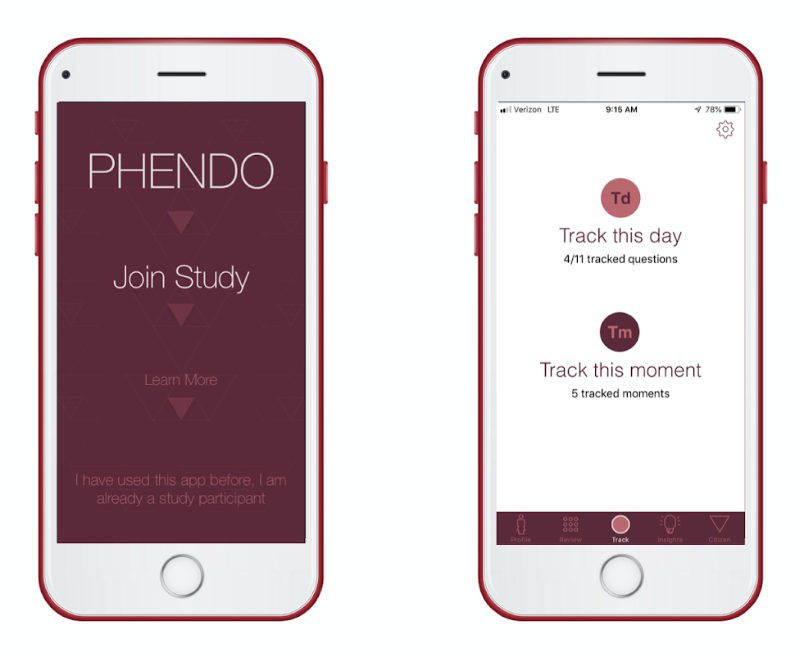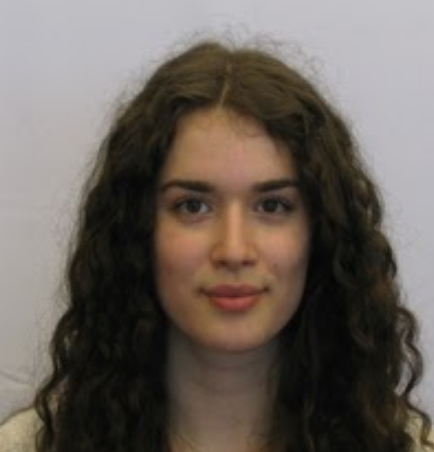In 2016, Noémie Elhadad and her lab at Columbia University’s Irving Medical Center created the Phendo, or “phenotyping endometriosis,” app, to better understand and identify symptoms of endometriosis. Endometriosis is a painful condition that causes overgrowth of the endometrium, or inner lining of the uterus, such that it grows outside the uterus and into other places in the body. Their goal is to fill in the gaps of knowledge about how individuals experience the disease on a day-to-day basis. The app invites anyone over the age of 13 who has had at least one menstrual period to record their experience with endometriosis by logging daily symptoms and observations, which the Phendo team analyze to draw conclusions about the endometriosis experience.


As someone who is not diagnosed with endometriosis, I have participated in this project as a control, meaning that my participation provided the researchers with a more robust understanding of what the “regular” day-to-day experiences are for people without endometriosis, giving them a solid baseline for comparison to other participants. For me, taking a few minutes at the end of each day to log my pain levels, mood, diet, exercise, and medicine intake quickly became a habit. I’ve become reflective about how I experience my body and how that experience is dynamic. On any given day, my mood might be good or bad, and my pain levels might be high or low. This app allows me to find patterns in my weeks and months, which helps me understand my body so that I can anticipate how I might feel at any given time.
The Future of Science and Medicine
Elhadad and her lab are working on something incredible, not just for themselves, but for the future of science and medicine. As Elhadad explains, “citizen science is making its way into biomedical research.” Traditional endometriosis studies are more invasive. They could involve regular physical examinations, extensive questionnaires, urine collections, blood sampling, pelvic examinations, and even surgery. While this provides rich data, using apps like Phendo allows for higher participation rates and more unique patterns of engagement for each participant, which could reveal more about what happens “in between” doctor’s appointments.
The National Institutes of Health dedicates about $7 million to endometriosis research, but for comparison, breast cancer research received $755 million in funding.
To develop the Phendo app, Elhadad conducted more “traditional” research studies that surveyed patients to better understand their opinions about the questions the app asks about their symptoms. This shaped how questions were phrased to make them as straightforward as possible, helping users feel comfortable on the app. Participants are asked questions like “What activities were hard to do today?” and “How is your mood?” Elhadad believes that using research studies to inform the design of this particular citizen science project has helped to optimize participation, leading to over 10,000 participants on this project.
Next steps for the Elhadad lab include publishing what they’ve discovered from Phendo and providing their data for the research community. This data is de-identified to protect the privacy of participants, so any personal information that could be used to trace their answers on the app back to them is separated from what other researchers can see. Elhadad explained that when papers are published, the team emails participants about their findings in simple terms, so that the Phendo community can be included in the sharing of this information. The lab also allows anyone to read their journal articles without a paywall and plans to add a component to the app that helps participants summarize their personal data and present it to physicians.
Open Access to Endometriosis Information
This emphasis on access to information is part of the project’s core values. The Phendo team hopes that it helps garner public interest and improve the access to government funds for endometriosis research. Currently, the National Institutes of Health dedicates about $7 million to endometriosis research, but for comparison, breast cancer research received $755 million in funding. Endometriosis affects about one in ten women, but is rarely discussed on the same level as other illnesses. Creating an app that people feel comfortable using can help to increase participation, giving Elhadad more to work with to help the scientific community understand and find cures for the condition. This app considers the wants and needs of participants and their doctors, and aims to create data that individuals and researchers can use in the future, for both personal health needs and wider societal understanding. Citizen science is an important tool for compiling information: when the public is a valued partner on medical research projects, regular people can begin to understand our own bodies, better communicate with professionals, and even shape what professionals are looking for in their medical studies.
Phendo has set the standard for collaborative biomedical research, and I am excited to see more apps like it in the future. It is empowering to know that we all have the power to help thousands of other people, and it is nothing but a few clicks away.
Featured image credit: Radu Florin/Unsplash
About the Author


Sylvia Kohn-Levitt is a senior at Brandeis University majoring in Health: Science, Society and Policy. After graduating, she plans to pursue a career in informal STEM education.

